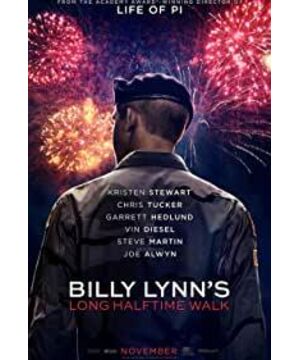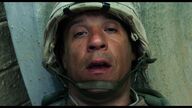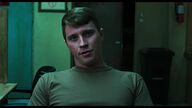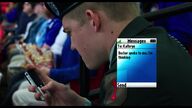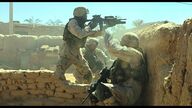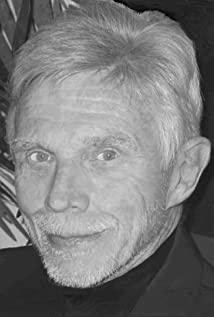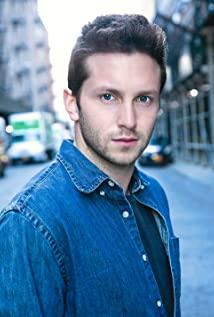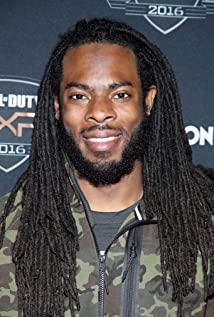"You risked your life for something bigger than yourself. How many people can say that? Maybe you didn't understand why we were at war. Maybe you never will. But it doesn't matter. You held your hand up and said , 'I'm willing to die for these worthless civilians.'"
—Phil Klay, Redeployment
When I got out of the movie theater and squeezed onto the subway, it felt like every grin and grin from passersby was unreal.
In the darkness of the cinema, I was impacted and squeezed by the extremely strong color picture, and the illusion seemed to become real - this is the most intuitive feeling of 120-frame technology for a perceptual audience without professional knowledge. The first comment I gave to my good friend after reading it was that this was a large-scale PTSD VR experience. I followed the hero back to the trenches in Iraq at the moment of the gun salute, followed him to the throat of the mortal enemy, followed him to hug the sacrificed superior and shed tears. When I finally got back to the real New York, I felt like everything was illusory: Grocery shopping? Who goes grocery when your fellow Americans are giving their lives away for the greed of those handful of privileged individuals? Look at this frighteningly mundane world like a veteran who leaves the battlefield. In "The Hurt Locker" I watched a long time ago, the male protagonist stood in the supermarket and was overwhelmed by the sudden abundance of material. I guess I was walking on the street with a pale and terrifying expression like his.
This is the story of a nineteen-year-old boy. Because of the family change, he needs to put on a military uniform. He goes to a strange country, listens to the command of the superior, and points the gun at the strange Arab faces. The men growl, the women cry, and the children run away in fright. for what. He became a national hero because of an accidental shot, and at the same time, the person he once trusted most was dying slowly in his arms. He saw blood on his hands, comrades and enemies. He was so young, but already weathered.
The family did not allow anyone to question the meaning of his military service, and they were still protecting him as a child. Only my sister said, don't work hard and go home.
But what about going home? Going to work at Burger King? Go to a community college? Paying taxes, paying insurance premiums and medical bills, falling in love, getting married, raising kids, watching him grow into an adult like himself... In the face of all the injustices in this world, in the face of all the impossibility in life, face to face To the mediocrity and embarrassment that he couldn't get rid of, in the face of disappointment, in the face of sadness, in the face of powerlessness...
At least when he pulled the trigger, he was actually doing something. The superiors once said that what they dedicate is not necessarily the country, not necessarily God, but anything greater than themselves.
In the stadium in Dallas, on the halftime show that was supposed to make him shine, he saw what this thing was. It's a fat man with a hot dog burger, a security guard who likes to be provocative, a cheerleader who is trained to be happy or sad, and an honor that has filled everyone's heart under the propaganda of nationalism. The national anthem was played, his face appeared on the big screen, and the audience burst into tears, but all the noise of whitewashing the peace made him think of the battlefield and the death he was about to face.
This is your country, the authority that has you manipulated like a puppet. This place is full of false touches, prosperous and exaggerated to the point where the fireworks burst into a half-time show, you print its logo on your chest, and you die for it, you can't even express your dissatisfaction with it softly, even though you Know that your education from an early age has taught you to be wholeheartedly good for it.
This is your people, they are running around for their own lusts. People who pretend to understand you, who mock you as a political tool, who say they love you not because of who you are, but only because of your uniform and the medal on your chest.
So you say, do you have to pay everything for it?
he said yes. For him, now his everything is the army. He chooses to love his comrades, he chooses to turn his gun on a foreign man who may be a civilian, and at the same time he chooses to leave the political disputes that spread to the family dinner table, leave the home that was crumbling because of an accident, and leave all the ordinary life. The possibility of trivial failure. No one is completely altruistic, and no one is completely selfish. His choice may be both, but who can blame him.
After all, he was just a nineteen-year-old child, a child who joined the army to protect his sister, and a child who was not even old enough to legally drink alcohol in his own country. He is just a tiny screw in the state machine. He will give all his youth to the meaninglessness he has long recognized. In the rest of his life, he could not escape the explosions, gunpowder smoke and blood every moment. He would slaughter, and in countless self-examinations afterwards, he would recall the lives that had disappeared from his hands.
However, he surrendered. This is his life, a life that he must continue to face if he chooses.
No one can escape life. We can only go back to life.
A few stats:
17% of the homeless population in the U.S. is a retired military.
Of the 1.6 million veterans who served in Iraq and Afghanistan, 45 percent are applying for disability benefits. Thirty-three per cent had identified disability related to the term of service.
Among these soldiers, about 20% were diagnosed with PTSD or depression, and many of the remaining 80% were reluctant to go to the hospital, to see a psychiatrist, or to admit that they had a "problem."
I can't check it out. I don't know how many people are looking at the same google text box as me at this moment, typing the same words, in order to confirm whether they are sick or not, in order to see if they are still normal.
A poet who lived at the crossroads of Russia and the Soviet Union said, "We must love this poor earth, for we have seen no other." This world riddled with holes, tomorrow morning when I open my eyes, you will Won't it get better?
The wind blows from east to west, from north to south, ignoring night and dawn... Tell me, what do you mean by dawn?
View more about Billy Lynn's Long Halftime Walk reviews


